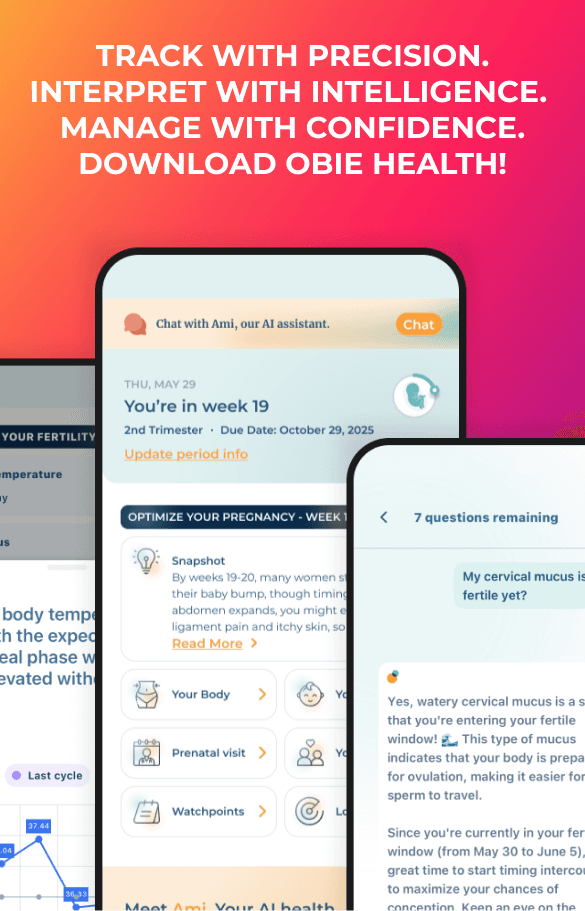Pregnancy Complications Associated with PCOS
Obie Editorial Team
Polycystic ovary syndrome affects approximately one in every fifteen women. It is relatively common, and the side effects are manageable in most cases. Some women who have more serious cases than others might seek surgery to remove the cysts from their ovaries, but many women only experience the painful side effects once in a while. If you have polycystic ovary syndrome, or PCOS, a hormonal imbalance causes cysts to form on your ovaries and you’ve probably noticed irregularity in your menstrual cycle, the formation of male-like traits or weight gain. Since PCOS is so closely associated with the reproductive system, studies have been conducted to find out how they affect childbirth, and more specifically what complications may arise.
In a recent study, pregnant women with PCOS were examined throughout their gestation and then complications were noted during delivery. Overall, these women did in fact experience more complications overall than women without PCOS. The more serious complications that occurred during pregnancy included higher rates of gestational diabetes mellitus, hypertension that only came on during the pregnancy, and preeclampsia. Complications that arose during delivery for women with PCOS included the need for delivery by cesarean section, the need for operative vaginal delivery, and babies that were born either small or large for their gestational age.
Polycystic ovary syndrome is not something you can prevent, and is not something you really have control over once you are diagnosed. Therefore, pregnancy complications that are common with PCOS cannot be avoided. However, knowing that you might run into some of these complications as a woman with PCOS could allow you and your healthcare provider to be better prepared. For example, knowing that you are more likely to experience hypertension during your pregnancy should allow you to prepare with the proper treatments and medication so that time is not wasted when it comes on.
As if polycystic ovary syndrome hasn’t been inconvenient enough throughout your life, it could also very well interfere with your pregnancy. If you begin experiencing these complications, know that you are not alone, as polycystic ovary syndrome is extremely common. Also, be grateful knowing that you are pregnant at all with PCOS, as infertility is a major side effect of the condition, and many women who live with it cannot have children. With the proper medical attention, you can overcome your PCOS during your pregnancy and safely deliver a happy, healthy baby.
Source: Pregnancy Outcomes in Women with Polycystic Ovary Syndrome. American Journal of Obstetrics and Gynecology Volume 204 Issue 6 pp. 558 June 2011
Read More









